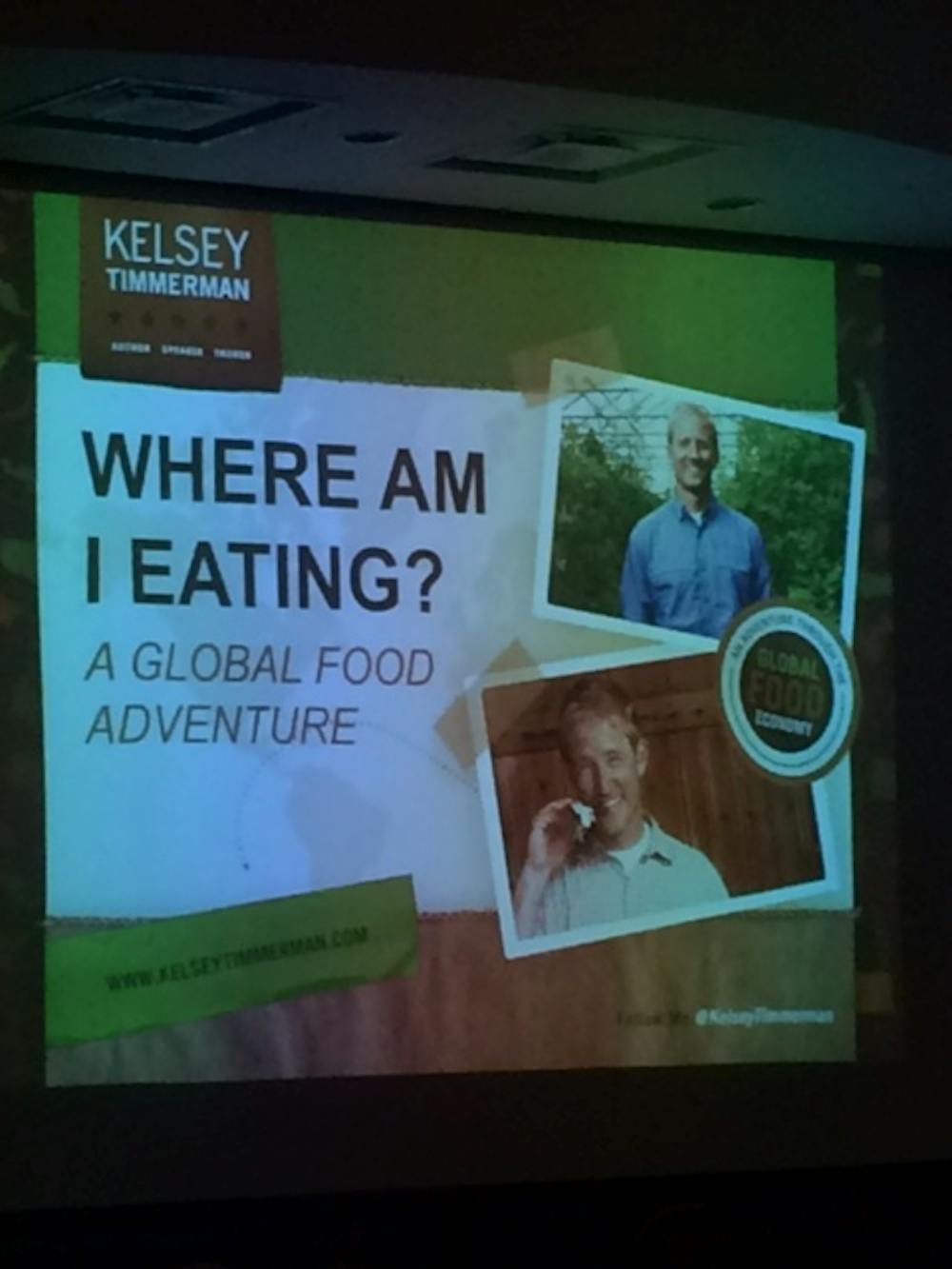It all started with a t-shirt.
That’s what fueled Kelsey Timmerman’s journey around the world to find out the origins of his food and clothing. Now, two books and countless talks later, Timmerman shares the stories of his travels with captive audiences around the U.S.; and not just his stories, but the stories he carries with him—the stories that, he believes, are his responsibility to tell.
This was the basis of his lecture at Miami University on Thursday, “Where Am I Eating: A Global Food Adventure”, in McGuffey. A Miami alum who majored in anthropology, Timmerman spoke not only as a lecturer, but as a comedian and philosopher as well.
He began with an amusing story about visiting Hershey World: the tourist attractions, the pride and wealth of the amusement park, the luxury of the accompanying hotel.
“It almost made me forget about the slave I met in the Ivory Coast,” Timmerman said, and all laughing seized.
Timmerman then told the story of Solo, a slave he met in West Africa at a cocoa farm. Solo arrived at the farm from Ghana with the promise of being paid, but soon realized this was not the case. He called his supervisor “master,” he was not allowed to leave the farm, and told Timmerman that even the donkeys were treated better than him. Solo worked tirelessly on the cocoa farm as an outsider, because everyone else in the community knew each other well, in the hopes of at least making $300 by the end of the year. But he had six more months to get there, and in the four months he had already been working, he hadn’t received a thing.
With permission from Solo’s master, Timmerman hired Solo as a translator. They travelled and spoke to other farmers, and Timmerman paid Solo $40. “What are you going to do with the money?” Timmerman asked, expecting Solo to return to Ghana, which was what Solo had said he wanted from the first time they met.
“Call my brother,” Solo said. He called his brother, who didn’t pick up, but Solo was still determined to go home. After a while, he told Timmerman he had to use the bathroom and walked away. Unsuspecting, Timmerman waited. And waited. Solo never returned, and Timmerman later learned that he was back on the farm.
“Did Solo pick slavery,” Timmerman asked, “realizing he had no other options?”
This became a theme of Timmerman’s talk: Are these situations of exploitation, or opportunity?
He related this to garbage picking he witnessed at a dump in Cambodia, to “underwater genocide” (unsafe deep diving) in Nicaragua for lobster. While these conditions are terrible, Timmerman made the point: But there’s nothing else to do there. In the case of Nicaragua, it’s either risking your life to dive deeper and deeper with shoddy equipment in order to capture a dwindling lobster population, or get involved in drug trade.
Despite the social inequalities that Timmerman saw firsthand in his travels, he finished his talk on a positive note.
“I don’t want you to feel guilty about this,” he said, “I want you to feel responsibility.”
He suggested making baby steps towards being a more aware consumer, such as wearing one fair trade item a day, searching out companies that provide people with opportunities, and getting involved on campus. He urged students to study abroad but also acknowledged the high poverty rate in and around Oxford, and the people in need in this community.
“You don’t have to travel halfway around the world to see a life different than yours,” he said.
Making one individual choice—to buy fair trade, to shop at farmers’ markets, to volunteer—may not change the world, he recognized, “but it changes you.”
For more information about Timmerman’s stories and publications, visit his website at: http://whereamiwearing.com/
Kelsey Timmerman: Impact Man

